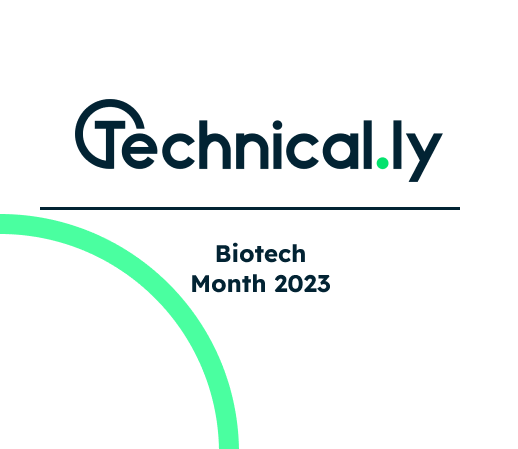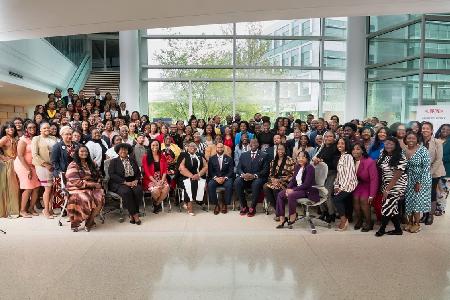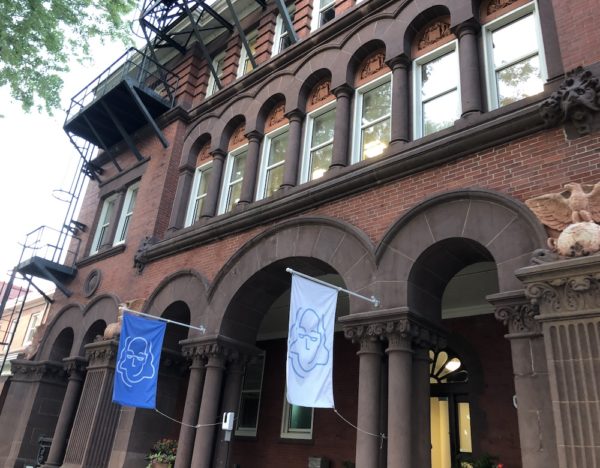
This editorial article is a part of Biotech Month of Technical.ly’s editorial calendar.
The US Economic Development Administration (EDA) today announced that 31 regions across the country could be officially designated as tech hubs, and Greater Philadelphia’s consortium made the cut.
The EDA Tech Hubs program is an effort from the federal government to support development, manufacturing and commercialization of technology across the United States. Funded by the CHIPS and Science Act, the program aims to help regions without the same funding or name recognition as Silicon Valley become global competitors, and assist the US in its aims to become a major player in high-tech manufacturing.
This summer, nearly 400 regional consortia made up of universities, state or local government entities, private sector firms and economic development groups applied for Tech Hubs designation on a region’s behalf as part of the program’s Phase 1.
But as Bruce Katz, a longtime urban policy wonk and director of Drexel University’s Nowak Metro Finance Lab, told Technical.ly in July, winning the designation is one part of a long road ahead: “Winning an application is not the end of the process; it’s the beginning,” Katz said. “It’s part of a broader strategy for global competitiveness.”
The 31 regions that received a designation are now entering Phase 2 of the application process, when they can apply to receive between $40 million to $70 million each to grow their tech manufacturing efforts.
Regions have until February to submit their applications for funding, said Tony Green, chief scientific officer at Ben Franklin Technology Partners of Southeastern Pennsylvania (BFTP). Earlier this year, BFTP took the lead to gather over 50 stakeholders from southeastern PA, southern New Jersey and northern Delaware to work together on the Tech Hubs application.
“The phase 1 designees and grant recipients reflect the diverse technological industries growing here at home and are symbols of American innovation and opportunity,” said Don Graves, deputy secretary of commerce for the US Department of Commerce, in the announcement. “The Tech Hubs program will provide them tools and resources to drive economic growth across the nation, which Americans will feel for generations to come.”
Philly, Camden and Wilmington are represented by the Greater Philadelphia Region Precision Medicine Tech Hub, designated as one of the EDA program’s Advancing Biotechnology: Precision and Prediction Tech Hubs.
“With expertise in cell and gene therapy, our rank as a top life sciences market, a deep scientific ecosystem, and a strong and diverse talent pool, our region is uniquely suited to lead in the precision medicine space,” said Chellie Cameron, president and CEO of the Chamber of Commerce for Greater Philadelphia, in a written statement. “Thanks to the leadership of Ben Franklin Technology Partners, the Greater Philadelphia Region Precision Medicine Tech Hub will create dynamic solutions and drive economic growth.”
Green told Technical.ly the consortium’s focus now is figuring out how to make the Greater Philadelphia region’s application stand out for Phase 2 funding. He thinks a strength of this consortium is that public and private organizations from all three states are working together.
“We can now pick and choose the partners on a purposeful basis. Every one of the 50 partners we got just for this designation proposal is there for a reason, because they bring something to the party that is synergistic,” Green said, adding that the region has to think about “not just the technology, but where’s the funding coming from? Where is the space for people to do their work? Where’s the workforce coming from, the training? What other resources do these technologies need?”
The Greater Philadelphia region’s proposal will also focus on how to get products and treatments to actual patients who need them, he said.
The partners will also be considering how to make the industry sustainable beyond this federal funding.
“This is really a signal that this region is coming together in ways that it hasn’t in the past,” he said, referencing the region’s involvement in other federal tech programs, such as ARPANET-H health innovation network. “My goal is to make sure that we [do] not just put in a proposal for this funding — that we build the right kind of infrastructure or architecture that allows us to go for other kinds of funding, and more importantly, help[s] to make the region sound and healthy in an equitable way.”
In addition to the 31 designated Tech Hubs, the EDA also awarded 29 consortia with strategy development grants intended to help those regions earn Tech Hub designation in the future.
Sarah Huffman is a 2022-2024 corps member for Report for America, an initiative of The Groundtruth Project that pairs young journalists with local newsrooms. This position is supported by the Lenfest Institute for Journalism.Join the conversation!
Find news, events, jobs and people who share your interests on Technical.ly's open community Slack

Delaware daily roundup: 20+ things to do in May; Technical.ly's Dev Conference; Dupont earnings

Philly daily roundup: Minecraft in a Philly school; PTW kicks off; Tech and art happy hour

DC daily roundup: April's biggest DMV funding stories; VCs head to Hill and Valley Forum; AI lobbying tripled



